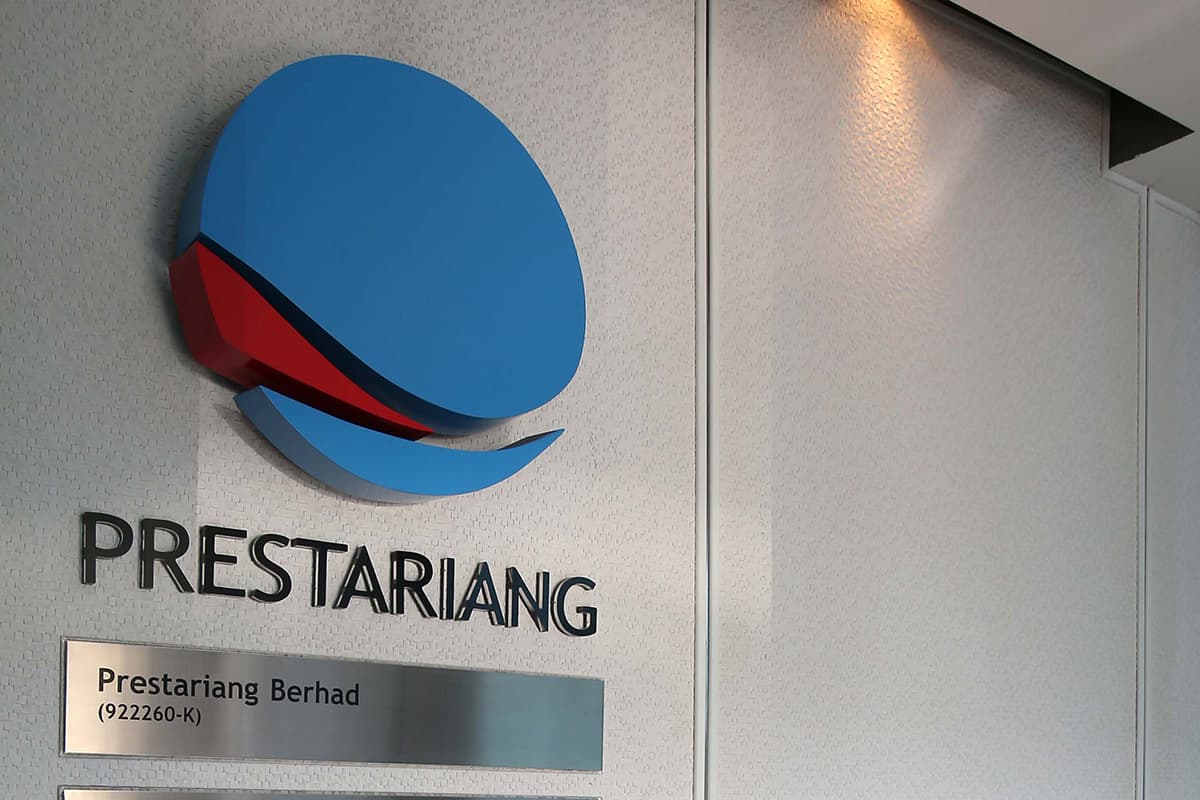
KUALA LUMPUR (Jan 25): Prestariang SKIN Sdn Bhd, a unit of AwanBiru Technology Bhd (AwanTec) which was formerly known as Prestariang Bhd, is entitled to damages of between RM733 million and RM922 million after the Pakatan Harapan (PH) government unilaterally terminated a concession agreement (CA) for the provision of a comprehensive immigration system over 15 years with the company, said its lawyer.
At the start of Prestariang SKIN’s hearing against the government, its counsel Datuk Lim Chee Wee in his opening statement said the company had completed 22.37% of the project since 2017, based on an assessment by an independent expert.
“The company did not breach any contract with regard to the CA with the government. There was no breach of contract; rather it was a unilateral termination by the Malaysian government of the CA by way of expropriation. Therefore, this court should not accept any argument that a clause in the agreement means the company is only entitled to receive a penalty sum.
“In any case, the sum of RM732.86 million or RM922 million claimed by the company or what the court is willing to decide in these proceedings, calculated from July 22, 2019, is not unconscionable as alleged by the Malaysian government,” the senior counsel said.
Lim submitted this before High Court Judicial Commissioner Datuk Seri Latifah Mohd Tahar last Friday evening, with a copy of the opening statement being sighted by theedgemarkets.com.
Latifah has replaced Justice Datuk Mohd Sofian Abdul Razak, who was promoted to the Court of Appeal.
Prestariang SKIN filed the suit in 2019, based on the contractual formula provided for in the CA, and after the two sides were unable to reach an agreement on the quantum to be paid by the government after engaging in a few rounds of negotiation.
Prestariang SKIN secured the RM3.5 billion Sistem Kawalan Imigresen Nasional (SKIN) project in August 2017 from the previous Barisan Nasional (BN) government. The project involved a 15-year concession to design and maintain a new immigration and border control system.
On Dec 10, 2019, the then PH government announced that the Cabinet had decided to scrap the project in favour of a new system that would save government funds.
The concession involved a three-year build and deployment phase, and a 12-year maintenance and technical operation phase. Payment by the government to Prestariang SKIN was to commence upon full commissioning of the system with an average annual payment of RM294.7 million.
'Compensation should include RM231.54 million'
Lim said the compensation sought by his client should include, but not limited to, the costs it had incurred, namely RM231.54 million plus any loss of profit, as verified by Prestariang SKIN's independent expert Sanjay Sidhu of BDO Consulting Sdn Bhd.
“In the event that this court finds that the contractual formula and approved financial model are not applicable to calculate the quantum of payment by the Malaysian government, Prestariang SKIN at the very least ought to be entitled to recover compensation for the work done,” he said.
Lim emphasised that the execution of the CA required his client to spend about one year to collate and gather information or produce a proposal for the project.
He added that this project was a public-private partnership approach, whereby Prestariang SKIN would bear all costs incurred and completion risk during the first three years from the development commencement date, and the government would not have to incur any cost until the programme is fully developed — that is, after the first three years of the concession.
The government, Lim said, would only pay after the project is completely operational, subject to the entire capital expenditure (capex) incurred as the project was privately funded.
The company and the government executed the CA on August 9, 2017, and work gradually expanded, leading to a supplemental agreement on April 11, 2018.
The PH government terminated the 15-year CA on Jan 22, 2019 by way of expropriation on the grounds of national interest and public interest.
As a result, Lim said, his client suffered losses, including its parent company AwanTec's shares, which he claimed were “hammered down”, citing media reports that 35% of Prestariang's share value was wiped out in just a single trading day after news broke that the project had been scrapped.
He added that all third-party contracts between his client and others had to be terminated, and the company is now liable to make payment to creditors, while various early termination costs had been incurred.
“It is presently undergoing debt restructuring, where repayment under the scheme of arrangement is entirely contingent upon the receipt of payment from the government. This led to the company's reputation to be greatly affected due to various connotations of the termination being circulated by the media upon the expropriation,” he added.
Lim said as the company was undergoing financial distress, it had to cut its number of employees. Prior to November 2018, the number of employees of AwanTec was 319. But after the expropriation, only 154 employees were retained as at April 2019, and as at June 2020, the number had fallen further to 85.
“Specifically for Prestariang SKIN, there are no longer any employees since June 2020,” he said, adding that when the government reopened the tender process, the work requirements demanded were similar to those stipulated in the CA, denoting his client's capability.
Saying Prestariang SKIN is a victim of present circumstances, Lim said substantial time, energy and resources were invested by his client throughout the entire CA period to produce the best possible immigration system, but the government is now refusing to honour the contract as stipulated in the CA.
The government is disputing the calculation and findings of Prestariang SKIN's experts. It is represented by senior federal counsel Abdul Hanir Hambali.
The hearing will continue on Jan 29.